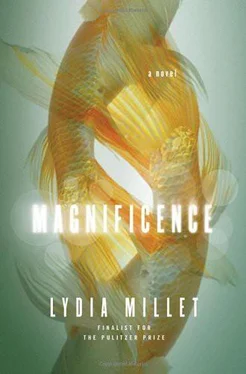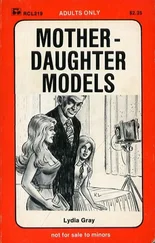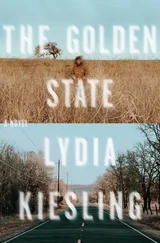“I want to be better,” she said after a while.
“You’re good enough for me,” said Jim, and turned his head slightly to rest his face against her shoulder.
“Obviously you set the bar low.”
“Don’t jump to conclusions,” he said quietly.
“There’s a third party,” she said. “My new plan is not to be selfish.”
“That part is my life. Let me worry.”
A car passed somewhere outside, light glancing. Of course it was his life, but if she let herself off this easy her resolution was meaningless.
“I don’t want those boundaries,” she said abruptly, and sat up. Her robe was puddled on the floor beside the bed — she was still damp from the shower beforehand, she realized — and she leaned down to get it. “You don’t want to tell me, fine. It’s your business, I agree. But then I get to say if you stay or go.”
She stood and threw the robe over her shoulders. She felt glad of its lightness, its shine in the lamplight. She could make a smooth exit.
But also her slippers were somewhere lost in the dark of the floor. In the big house she almost never went barefoot. Sharp things were lodged in the elaborate tilework of the hallways, old, permanent dirt blackened the soles of her feet even after the women came to clean. She widened her eyes, tried to look harder. There, on the mirror lake with the long yellow reeds like Easter-basket stuffing, a flip-flop lay between a duck’s feet, the other tumbled beside it.
He mumbled something. She couldn’t quite hear and turned back to him as she pulled the robe’s belt tight.
“Sorry?”
“No love,” he said.
“No love?”
“She doesn’t love me.”
His eyes were still closed. She saw his chest in the light, hairless and lightly muscled. She’d even come to like his stomach, even its small roll. In the quiet she thought of asking him if he was sure, if he was just saying that, if he was rationalizing. But something in the tone of his voice stopped her.
“No love at all. Not for years. Really, I promise you. She doesn’t give a shit.”
“Then why are you still together?”
“Susan,” he said slowly, almost growling, and this pleased her. She remembered Fantasy Baseball and the way he’d said Susie , and how she had disliked him for it. She almost shivered. “Let’s not.”
She considered for a few moments and lay down.
•
In the morning she woke up and found he was still there, for once. He seemed unworried by the novelty of the infraction. He got up and shuffled around the kitchen in a T-shirt, boxers and his unlaced dress shoes without socks.
“Those shoes look ridiculous,” she said fondly.
“Next time I’ll bring the slippers and pipe,” he said, but didn’t glance up at her. He was breaking eggs for an omelet.
They shared it on a single plate, sitting on either side of a wrought-iron table at the end of the pool. Above them were the branches of a weeping willow. Then they smoked two of his cigarettes and drank their black coffee. Their faces were in the willow’s shade, and she shivered and felt good.
He was consulting his watch — it was a weekday morning and he had to go to work — when T. came around the corner from the front of the house, followed by Casey.
Jim looked sidelong at Susan, squinting and crossing his legs. She had only the robe on, the robe and her flips, though her hair was brushed and she was clean. He was less so, half-dressed, his hair mussed, the boxers a dead giveaway. The situation was clear.
She watched Casey’s face as it neared.
“How awkward,” she said.
Best to be brutally frank. Her daughter was.
“Chill out,” said Casey mildly.
“Sorry for the intrusion,” put in T. “I wanted to see the place.”
She looked from Casey’s face to T.’s as they came toward her alongside the pool. They were relaxed.
“I made him drive over here, actually,” said Casey. “So you should blame me.”
Susan recognized her own position, hers and Jim the lawyer’s, and at the same time she knew the position of Casey and T. It was the same, she was surprised to realize. She had thought so before, she recalled, but had never known.
She felt relief brimming in her. Relief.
“I called,” said Casey, “but no one picked up.”
She and Susan looked at each other, both of them in their chairs. Susan felt a beam between them, a generous current. Casey was happy, she realized, and this made her lighter in her bones, made her happier, she felt, than she had been for so long. Neither of them had been this happy before, at least not since the accident. Her daughter’s happiness was her own. She had forgotten it for a while.
Even if Casey was hurt by this in the end, she had to think next — and rapidly she was squeezed at the heart, narrowly constricted and wrenched by fear, then just as rapidly loosened — still it was better this way. Open again, after these years.
As she gazed at her girl in the wheelchair a cloud moved and the sun fell on Casey’s pale face, backlit her hair golden. In a trick of thought her daughter seemed young, eternal, all ages of herself that passed in wonder before her mother’s eyes — when she played outside in the sun often, her hair turned lighter blond. Now once again it might look as it used to when she was a little girl, a little girl in a blue swimsuit on the beach with her parents. Susan was almost back there, years ago sitting on a dune, almost sitting on the sand with Hal beside her as Casey ran up to them from the water, stopped and shivered, hands clasped in front of her, grains of sand on her skin. Then she was off again, down to the waves, shivering and running as they watched her go, wet braids on her shoulders. How children shivered — with passion, without reserve. They shivered with their whole bodies.
She loved them for it, the freedom of that shiver.
The scene retreated. She wondered idly if Jim would get up in front of Casey and T. and walk around in his boxers, whether the button fly was undone and gaped open.
“If it’s no trouble,” said T., “Casey can show me around.”
“It’s no trouble,” said Susan, and smiled at him.
She and Jim sat and watched them go around the house to the back, voices fading.
“If you want,” said Jim, and cleared his throat, “I could come over for dinner.”
She was confused for a second. A breeze lifted the branches around them and she thought Hal was here — not gone, then gone, still gone, gone still. Old, dead leaves from last fall were also stirred, moving along the pool’s deck. She felt so grateful: the turbulence of currents — the best of weather, the best of earth, a small whirlwind. Green branches wavered and jumped in the gusts over her shoulders and at her feet their leaf litter swirled and dove like swallows.
The air was warm. She was so lucky to exist.
And Hal, Hal would have done anything to see their baby happy like this again. He had, she thought, he had done anything — was he a saint after all? He had returned to earth. A sacrifice was made, the son came home, and now their daughter was happy.
She rose on a wave of love and grief — he had accomplished it, at the greatest possible cost. He had brought it all here, given it all to Casey.
Nonsense — sentimentality. Nothing but circumstance. Accident, manslaughter, or coincidence.
But for a fleeting second she thought she felt him in the marrow of her bones, the small hairs lifting on the backs of her arms before the tingle and the chill dissolved.
Molecules, molecules and atoms, sweet tiny points of being.
It was Jim across from her, inches beyond the table edge, and yet it could so easily not be.
First she thought she’d have the housewarming catered, for ease and novelty. She’d never thrown a catered party and this occasion was ceremonial: an end, a start again. But then she decided to invite Steven and his son, who wanted to contest the will. She didn’t want to see them, of course; it was a purely diplomatic move, a hope that sociability would sway them. To that end she decided a caterer was out of the question: at the sight of such pretension, or at least such disposable income, the cousins might well descend upon her in fury.
Читать дальше












